

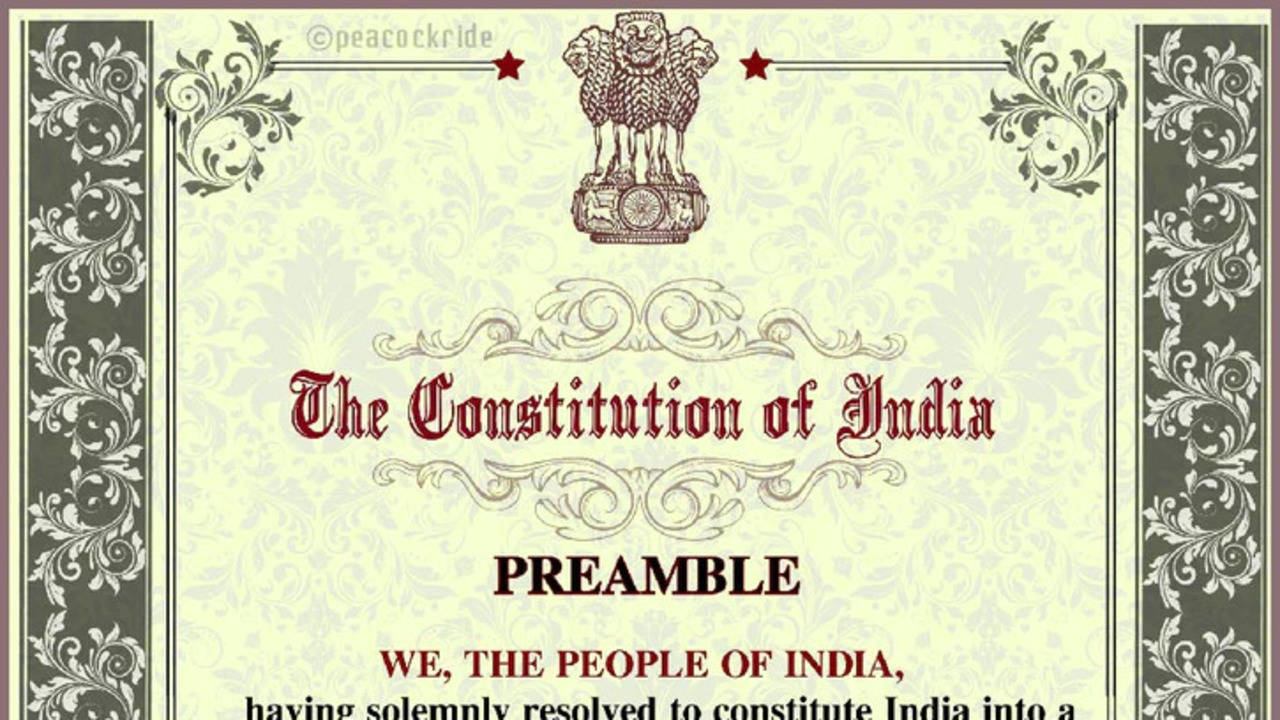
The Supreme Court has dismissed a set of petitions demanding the elimination of "secular", "socialist" and "integrity" from the Preamble of the Indian Constitution. The court stated that after 44 years of their introduction in 1976 by the Indira Gandhi government, there is no genuine reason for challenging the Constitutional amendment. The petitioners, including Subramanian Swamy, argued that these words violate the basic structure of the Constitution, but the apex court disagreed and emphasized that parliament holds the power to amend it. The court also pointed out the delay in filing the petition and clarified that parliament's power to amend the Constitution is not constrained by the date of its adoption.
The Preamble to the Indian Constitution: A Matter of Debate
The Preamble to the Indian Constitution, adopted on November 26, 1949, is a declaration of the ideals and aspirations of the Indian people. It sets out the fundamental principles of the Indian state, including its sovereignty, democracy, republic, secularism, socialism, and justice.
The 1976 Amendment
In 1976, during the Emergency period, the Indira Gandhi government amended the Constitution to include the words "secular" and "socialist" in the Preamble. The amendment also substituted the word "integrity" for "sovereignty" in the phrase "Sovereign Socialist Secular Democratic Republic of India."
The Recent Petition
In 2020, a group of petitioners, including BJP leader Subramanian Swamy, filed a petition in the Supreme Court demanding the deletion of the words "secular," "socialist," and "integrity" from the Preamble. They argued that these words violate the basic structure of the Constitution.
The Supreme Court's Decision
In August 2022, the Supreme Court dismissed the petitions, stating that after 44 years of their introduction, there was no genuine reason for challenging the constitutional amendment. The court noted that Parliament holds the power to amend the Constitution and emphasized that the amendment did not violate its basic structure.
Top 5 FAQs
1. What is the Preamble to the Indian Constitution?
The Preamble is a declaration of the ideals and aspirations of the Indian people and sets out the fundamental principles of the Indian state.
2. Why were the words "secular" and "socialist" added to the Preamble?
They were added in 1976 to reflect the government's commitment to socialism and secularism.
3. Why did the petitioners want to remove these words?
They argued that the words "secular" and "socialist" violate the basic structure of the Constitution and undermine the sovereignty of the Indian state.
4. What was the Supreme Court's reasoning for dismissing the petitions?
The court stated that after 44 years of their introduction, there was no genuine reason for challenging the amendment and that Parliament holds the power to amend the Constitution.
5. What are the implications of the Supreme Court's decision?
The decision upholds the validity of the 1976 amendment and confirms Parliament's power to amend the Constitution. It also suggests that the basic structure of the Constitution is not static and can evolve over time.
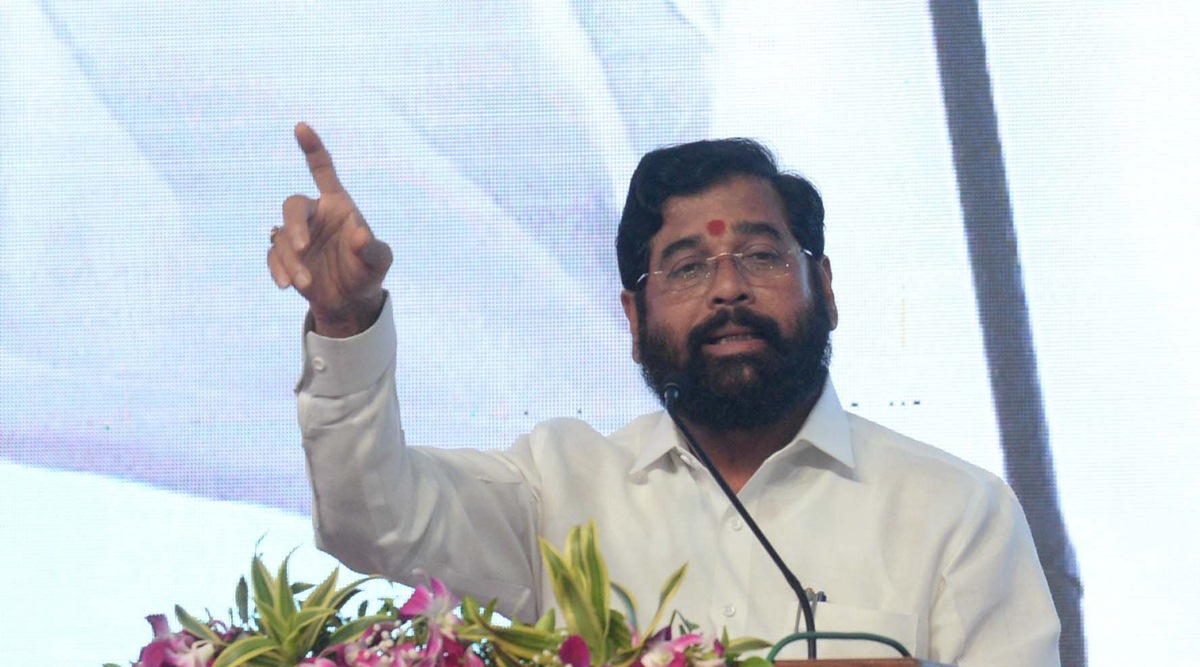
Following the landslide victory of the Mahayuti coalition in Maharashtra, Eknath Shinde has resigned as Chief Minister and been appointed as caretaker by the Governor. However, the suspense over who will be the next chief minister continues as the Aghadi alliance's dream to wrest power has been shattered. Despite their thumping victory, the Mahayuti coalition has been delayed in forming the government due to the Shiv Sena's insistence on Shinde continuing as chief minister.
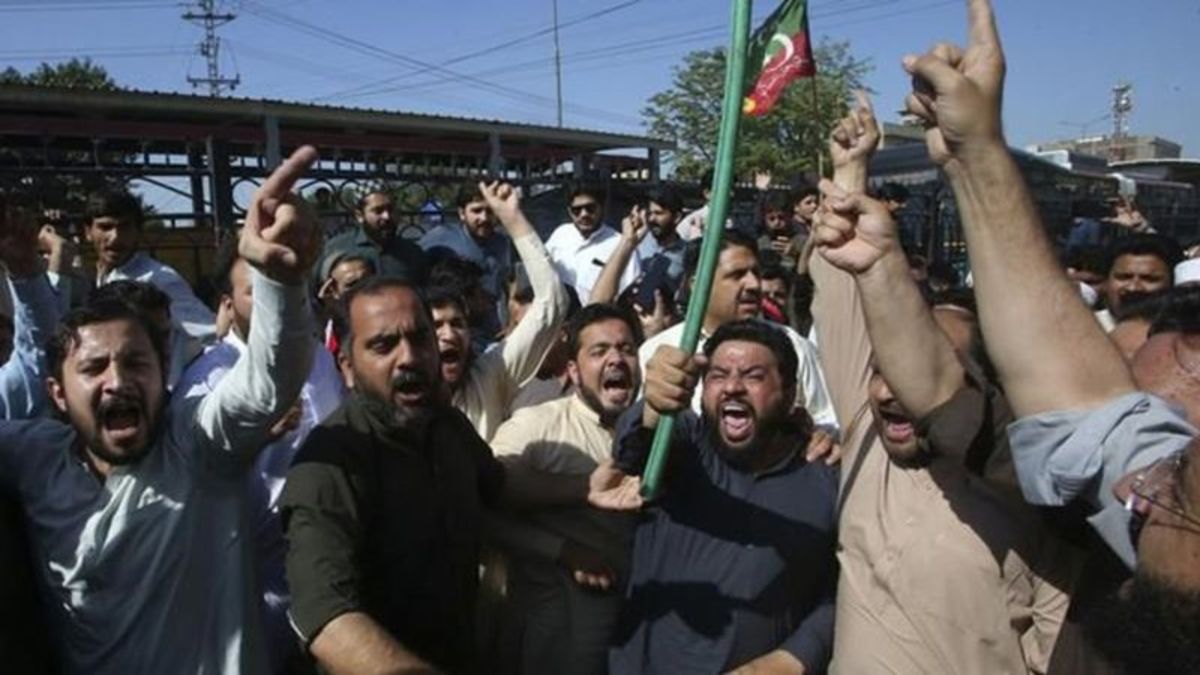
Six people, including security personnel, have been killed and over 100 injured as protests turned violent in Islamabad. The government has deployed the army and ordered them to shoot on sight. The protests, demanding the release of ex-PM Imran Khan, come amidst political tension in the country. Opposition leader Rahul Gandhi also invoked the Constitution in a recent speech, suggesting that the issue may play a role in the 2024 elections.
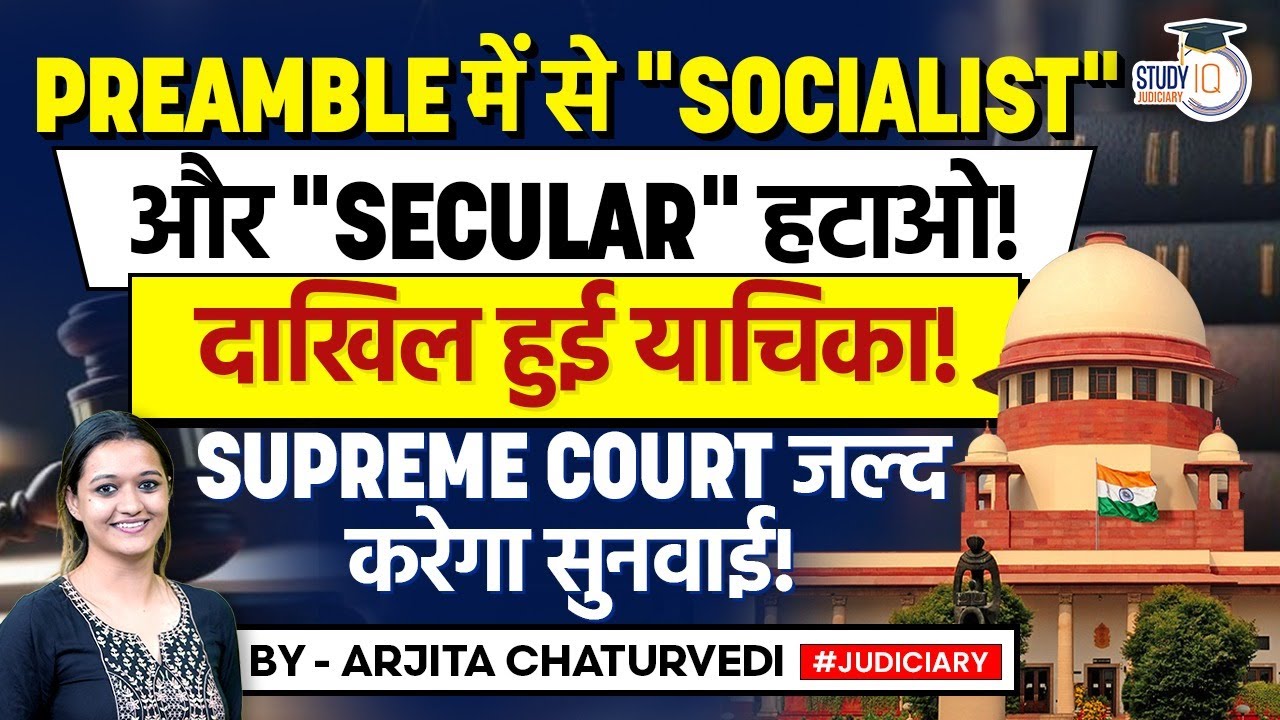
The Supreme Court of India has rejected three petitions requesting the removal of the words 'secular' and 'socialist' from the Indian Constitution's Preamble. The Bench, headed by Chief Justice of India Sanjiv Khanna, stated that the power of Parliament to amend the Constitution extends to the Preamble as well. The court also clarified that the terms 'secular' and 'socialist' are integral to the Constitution and do not restrict the government's economic policies or private initiatives.
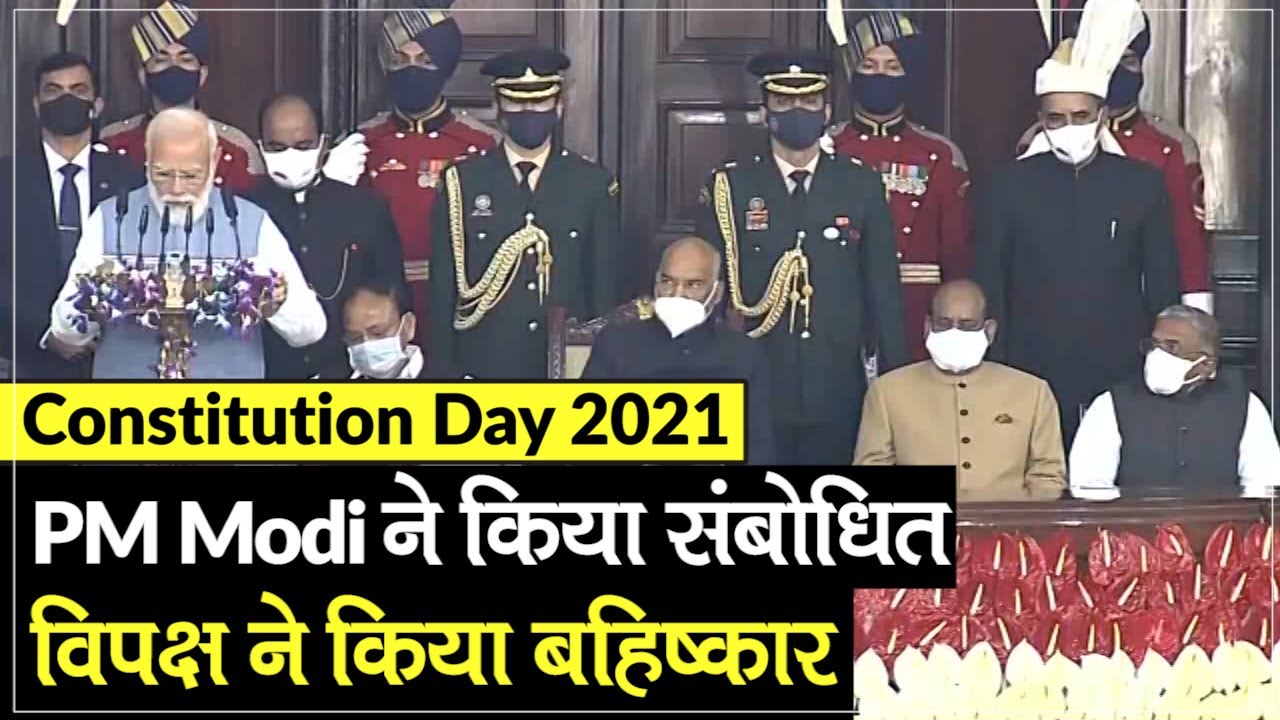
As India celebrates the 75th anniversary of its Constitution, the political scene is abuzz with discussions on its teachings and values. The Congress has requested two days in Parliament to discuss the document, while President Droupadi Murmu stressed its significance in a joint sitting. The Supreme Court also upheld the validity of ‘secular’ and ‘socialist’ in the Preamble, with Vice President Jagdeep Dhankhar emphasizing the need for constructive dialogue to uphold the sanctity of our democratic institutions and promote informed citizenship.
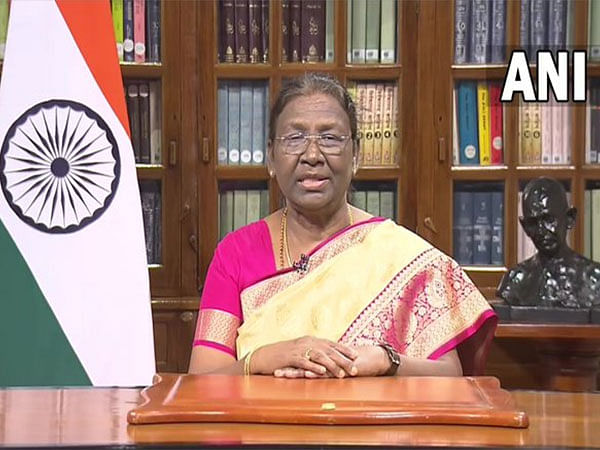
In a special event held at the Rashtrapati Bhavan, President Droupadi Murmu paid tribute and recognized the crucial contributions of 15 women members of the Indian Constituent Assembly in shaping the country's constitutional framework. During her address, President Murmu highlighted the significant impact of these women in ensuring gender equality and representation in the democratic process, and their tireless efforts in making the Constitution inclusive and progressive. This event serves as a powerful reminder of the remarkable women who have played a pivotal role in shaping the destiny of India.
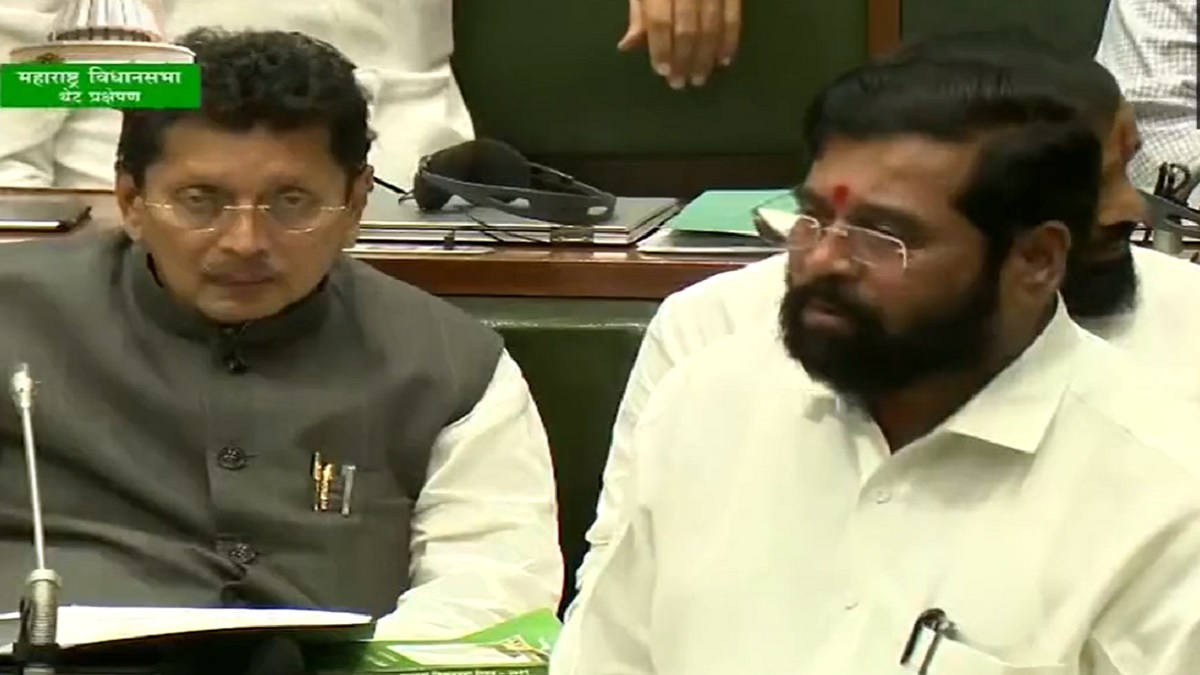
After the term of the Maharashtra state assembly came to an end, Chief Minister Eknath Shinde stepped down from his post. However, he will continue serving as the caretaker CM until the Mahayuti alliance decides on new leadership. The political decision has sparked discussions and speculations about who will take over as the new CM.

Chief Justice of India Sanjeev Khanna spoke at a Constitution Day event, highlighting the transformative journey of India since independence and the role of the Constitution in shaping the country. He emphasized that the Constitution is a way of life that must be upheld by both judges and members of the bar. The annual observance of Constitution Day was officially declared in 2015 to honor the values enshrined in the Indian Constitution.
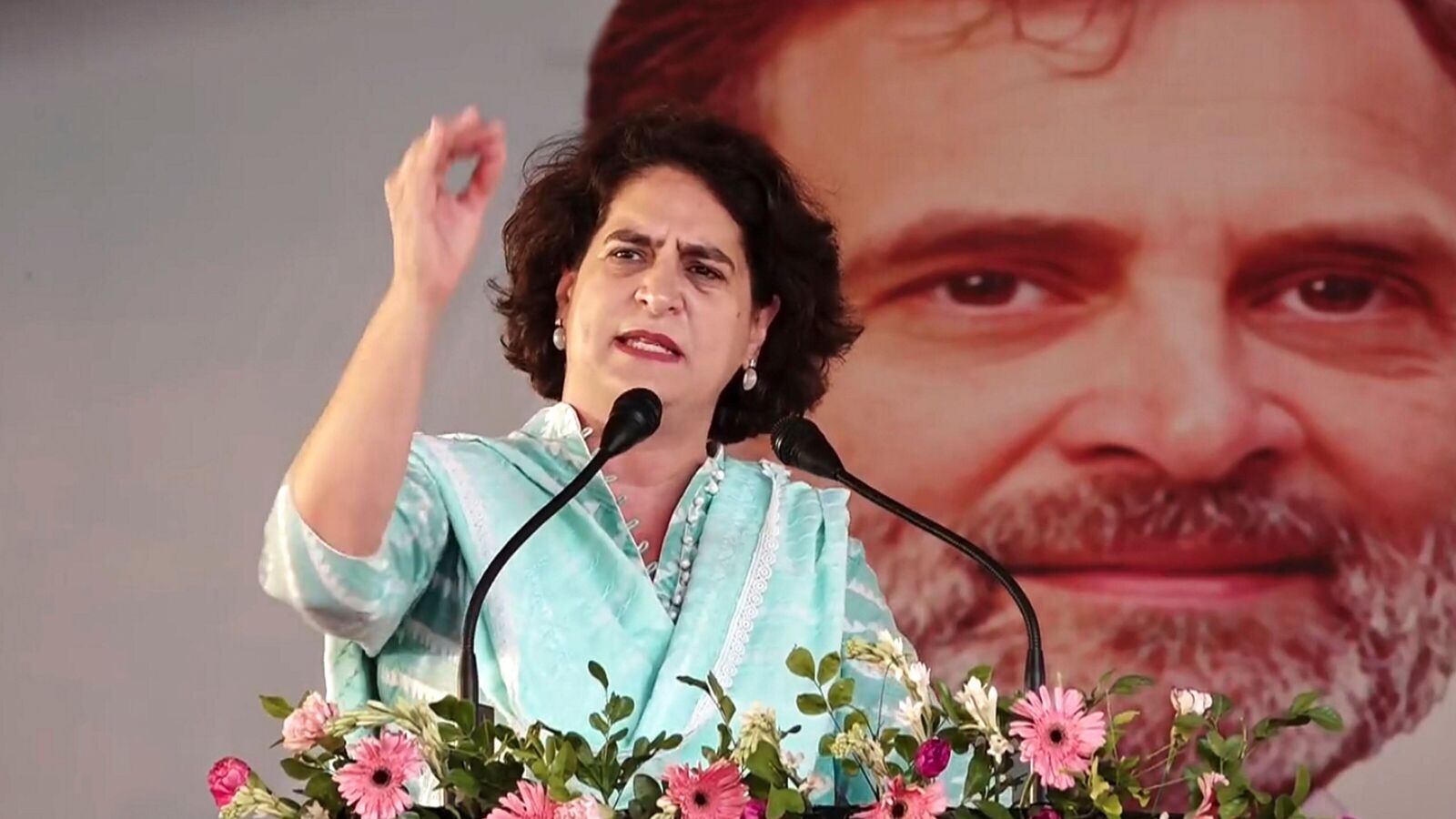
After Congress leader Priyanka Gandhi's victory in the 2024 Indian parliamentary elections, members of the Telangana Pradesh Congress Committee (TPCC) expressed their congratulations and belief that her win signifies a boost for women's empowerment in India. They also drew comparisons to her grandmother, Indira Gandhi, who they say championed women's rights during her tenure as prime minister. Meanwhile, they criticized the opposing BJP and RSS parties for their lack of support for women in politics and society.

As Maharashtra commemorated the 16th anniversary of the 26/11 terror attacks, key figures from the state came together to pay their respects at a memorial in Mumbai. The event was attended by Chief Minister Eknath Shinde, whose upcoming resignation is set to create political turmoil and potentially form a new government. The day also saw tensions rise in Udaipur's royal family feud, Trump's plans to appoint Kash Patel to a key position, and unrest in Bangladesh over the arrest of a Hindu leader.